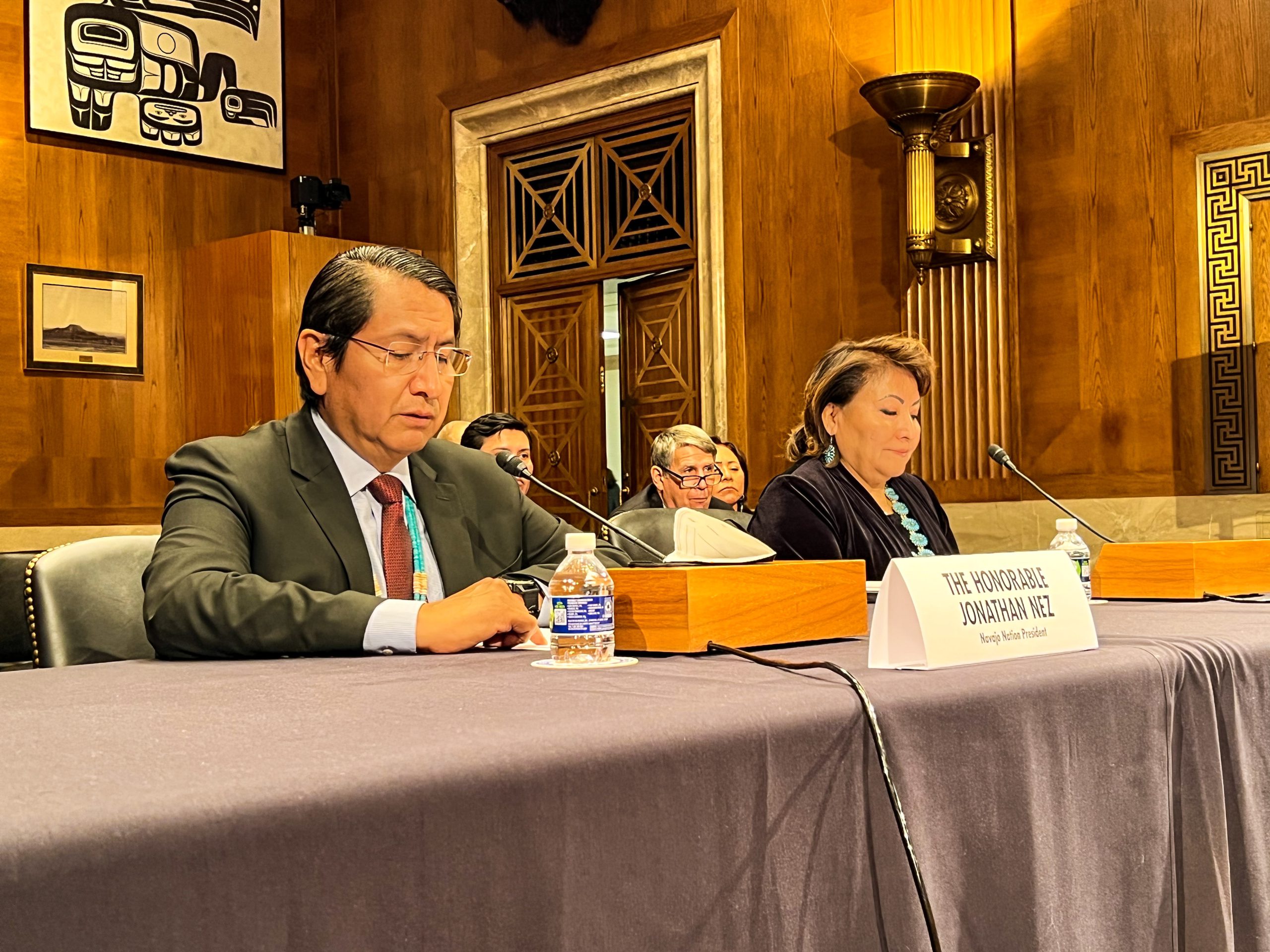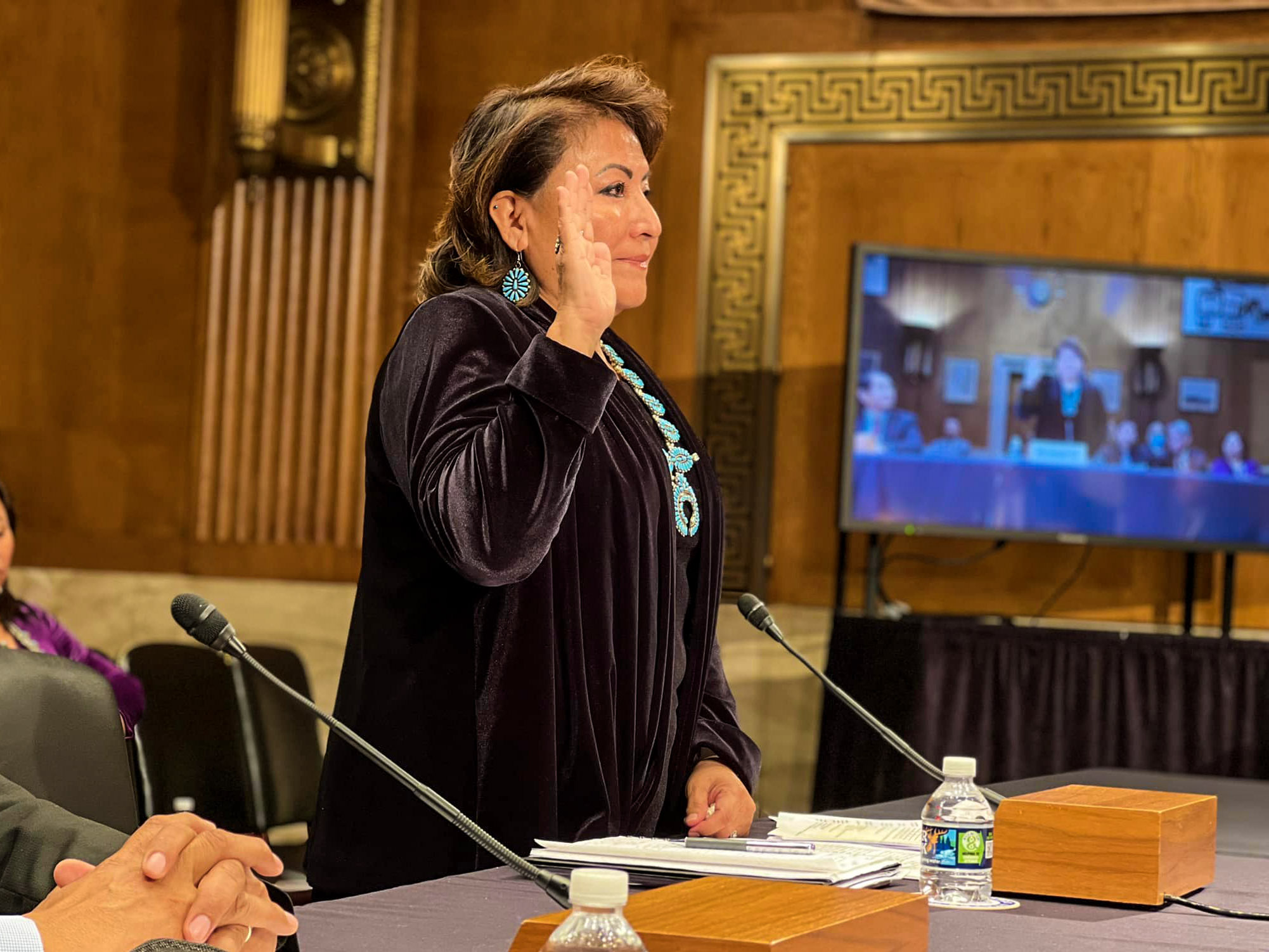Indianz.Com > News > Indian Health Service nominee vows to take on long-standing challenges
Indian Health Service nominee vows to take on long-standing challenges
Thursday, May 26, 2022
Indianz.Com
• ROSELYN TSO WRITTEN STATEMENT: PDF
WASHINGTON, D.C — The Biden administration’s nominee to lead the Indian Health Service faced few questions at a long-awaited nomination hearing on Capitol Hill.
But Roselyn Tso, a citizen of the Navajo Nation told the Senate Committee on Indian Affairs on Wednesday that she was ready to meet the challenges in delivering services to more than 2.5 million American Indians and Alaska Natives across the country. Chronic disparities in health care and health status have only been exacerbated by the ongoing COVID-19 pandemic, the longtime IHS employee said.
“When I travel across the region to different IHS facilities, I am reminded of the many health disparities facing American Indians and Alaskan Natives — health disparities that in many cases were made worse by COVID-19,” Tso said in her opening statement at her nomination hearing before the committee.
“For example, sadly, today, too many Navajo families still do not have access to running water in their homes,” Tso continued. “Access to clean, safe drinking water is essential to the health and well-being of our people.”


Sen. John Hoeven (R-North Dakota), another past chair of the committee, was the only Republican who participated in the hearing. Sen. Lisa Murkowski (R-Alaska), the current vice chair of the panel, was absent due to personal reasons, her GOP colleague said. Hoeven expressed concerns about ensuring IHS and tribal facilities receive medical equipment in a timely manner. He cited a May 5 story in The Wall Street Journal that reported on delays faced in the Great Plains Area, where services have routinely been deemed “substandard.” “In some instances, facilities have waited for over a year for the equipment,” Hoeven said. “And obviously these delays caused hospitals to search for alternative sometimes even more costly ways to proceed while waiting for the equipment.” If confirmed as director of the IHS, Tso promised that she would prioritize business operations at the agency in order to improve delivery of services, including medical equipment. “This can be done,” she said.President Nez speaks on Capitol Hill in support of the confirmation of Roselyn Tso to serve as the new Director of IHS pic.twitter.com/CmERUp83uk
— Jonathan Nez (@NezForAZ) May 25, 2022
Senate Committee on Indian Affairs Notice
Nomination Hearing to consider Roselyn Tso to be Director of the Indian Health Service, Department of Health and Human Services (May 25, 2022)
Related Stories
Search
Filed Under
Tags
More Headlines
Chuck Hoskin: Cherokee Nation benefits from extension of health care credits
Native America Calling: Tribal museums reflect on tumultuous year, chart their next steps
Press Release: National Museum of the American Indian hosts Native art market
AUDIO: Sea Lion Predation in the Pacific Northwest
Native America Calling: Tribal colleges see an uncertain federal funding road ahead
Native America Calling: Short films taking on big stories
Native America Calling: Advocates push back against new obstacles to Missing and Murdered Indigenous Relatives momentum
Native America Calling: For all its promise, AI is a potential threat to culture
NAFOA: 5 Things You Need to Know this Week (November 24, 2025)
Chuck Hoskin: Cherokee Nation invests in rural transportation
Native America Calling: Native candidates make strides in local elections
National Congress of American Indians returns incumbents and welcomes newcomers to leadership
National Congress of American Indians chooses leadership at big convention
‘Not voting is still a vote’: Native turnout drops amid changes in political winds
Native America Calling: Indigenous voices speak up, but have little clout at COP30
More Headlines
Native America Calling: Tribal museums reflect on tumultuous year, chart their next steps
Press Release: National Museum of the American Indian hosts Native art market
AUDIO: Sea Lion Predation in the Pacific Northwest
Native America Calling: Tribal colleges see an uncertain federal funding road ahead
Native America Calling: Short films taking on big stories
Native America Calling: Advocates push back against new obstacles to Missing and Murdered Indigenous Relatives momentum
Native America Calling: For all its promise, AI is a potential threat to culture
NAFOA: 5 Things You Need to Know this Week (November 24, 2025)
Chuck Hoskin: Cherokee Nation invests in rural transportation
Native America Calling: Native candidates make strides in local elections
National Congress of American Indians returns incumbents and welcomes newcomers to leadership
National Congress of American Indians chooses leadership at big convention
‘Not voting is still a vote’: Native turnout drops amid changes in political winds
Native America Calling: Indigenous voices speak up, but have little clout at COP30
More Headlines